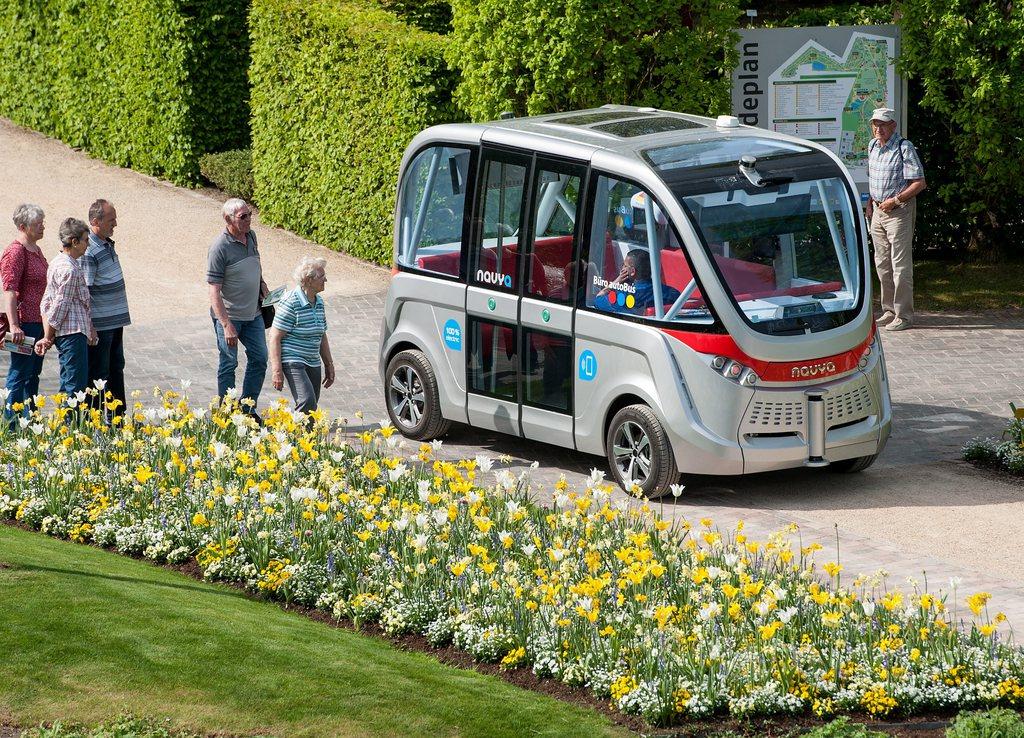
Geneva to test fleet of self-driving buses

The canton of Geneva is set to test a system of self-driving public buses as part of an international project organised by the University of Geneva and part-funded by the European Commission.
Following the Swiss city of Sion, which was the first to test autonomous public service vehicles in 2015, Geneva will now also position itself as a leader in the futuristic field, announced the University and the European consortium AVENUE on Tuesday.
+ Background: watch the driverless buses on the streets of Sion
According to a press statement [insert link] published by the university, the four-year project will draw on a fleet of autonomous vehicles of sizes ranging from four to 12 places, and aims gather data reflecting the economic, logistic, and social implications of a self-driving network.
Run in collaboration with local authorities and the Geneva public transport services (TPG), the trial hopes to collect information around three major axes: “autonomous driving” (the security and adaptability of vehicles), “optimization of itineraries” (the user experience), and “in- and out-of-vehicle services” (catering to reduced mobility passengers, for example).
It will be conducted in suburban areas less frequently or conveniently serviced by existing routes. “Autonomous vehicles will not go downtown,” said Denis Berdoz, CEO of TPG.
Geneva, Switzerland’s second-largest city, is particularly suited to such a trial because of the complex traffic situations it offers (a combination of jams, pedestrianized zones and bicycle lanes), as well as the well-mapped and GPS-ready nature of the region.
The project has a budget of some €22 million (CHF26.28 million), €16 million of which are funded by the European Union’s Horizon 2020 research financing mechanism.

In compliance with the JTI standards
More: SWI swissinfo.ch certified by the Journalism Trust Initiative

























You can find an overview of ongoing debates with our journalists here . Please join us!
If you want to start a conversation about a topic raised in this article or want to report factual errors, email us at english@swissinfo.ch.